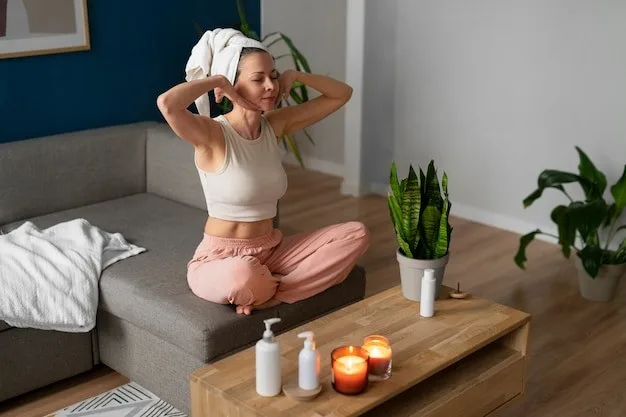As an individual who has led a busy life for a long time, I know exactly how simple it is to set work demands ahead of personal ones. However, I have discovered on a daily basis that ignoring self-care may result in burnout and a general feeling of unbalance. In this article, I will offer some ideas for achieving balance and promoting self-care in today’s hurried environment.
In the world we live in now, it’s simple to get caught up in the busyness of daily life. It can be hard to find time for yourself when you have work goals, family responsibilities, and social plans. But it’s important to know that not taking care of yourself can lead to negative outcomes. If you don’t take care of yourself, you could get tired, anxious, or depressed, among other things.
Importance of Balance and Self-Care
Balance can mean many things to different individuals, but at its foundation, it refers to achieving harmony in all facets of your life.
Self-care is critical to establishing balance because it helps you to meet your mental, physical, and spiritual requirements.
When you emphasize self-care, you are more capable of dealing with life’s obstacles and preserving your sense of balance.
Imbalance and Burnout Symptoms

In today’s hectic world, it’s simple to get wrapped up in the everyday hustle and bustle. It can be hard to find time for self-care and relaxation when you have to work, take care of your family, and do other things. But ignoring our physical and mental health can cause burnout and other major health issues.
Before they get worse, it’s necessary to notice the signs of unbalance and stress. Some common signs are feeling overworked, having difficulty sleeping, and feeling tired all the time. You may also notice that you get angry, worried, or sad quickly. If any of these scenarios are happening to you, it’s time for you to take a turn back and put yourself first.
- Constant weariness and weakness
- Trouble sleeping, sometimes called insomnia
- Heightened irritation or erratic emotional states
- Decreased drive and output
- A sense of futility or despair
- Experiencing actual physical discomforts like aches and pains
- A rise in drug or alcohol consumption
- Inability to focus or make a choice
Tips for Prioritizing Self-Care and Managing Stress
Taking care of yourself and managing your stress go in close proximity hand. Here are a few tips that will help you do both:
- Take Daily Breaks
Breathing deeply, moving, or meditating for just a few minutes can do a lot for your mind.
- Get Enough Sleep
Strive for a minimum of seven to eight hours of sleep each night and make it a habit to go to bed at the same time every night.
- Healthy Diet
Eating a healthy diet full of nutritious foods can help your body and mind feel better.
- Spend time on your hobbies.
Taking part in things you enjoy can make you feel happier and less stressed.
- Exercise Regularly
Physical exercise is a great way to feel better and less stressed. Physical activity can enhance sleep quality, making it simpler to fall slumber and remain asleep throughout the night.
Relaxation Techniques for a Busy Lifestyle

If you are always on the go, it can be hard to schedule a time to relax. But there are many ways to relax that can be performed with little effort, such as:
Progressive Muscle Relaxation: In this method, you constrict and then rest different groups of muscles all over your body.
Visualization: Putting yourself in a peaceful state might help you feel more comfortable and at ease.
Mindfulness Meditation: It is possible to alleviate tension and anxiety by bringing one’s attention to the here and now and letting go of one’s thoughts.
Taking Time for Oneself
- When you make time for yourself, you allow your mind and body the opportunity to unwind and replenish the energy they’ve used.
- Putting your own self-care first may be an effective strategy for coping with anxiety, sadness, and other mental health disorders.
- If you are in the finest possible physical and mental state, you are more likely to treat other people with patience, kindness, and compassion.
- It is much easier to tackle responsibilities and make progress when you have had sufficient rest and are able to unwind.
How to Create a Self-Care Routine?
Making time for yourself on a regular basis is an important step in meeting your own needs and finding fulfillment in life. To begin going, follow these steps:
- Figure out Your Needs: Figure out what you require on a physical and emotional level to function at your peak performance.
- Make a Plan: Make a timetable or strategy that gives you time to do things for yourself.
- Stick to it: Take excellent care of yourself, a top concern, and promise to stick to your schedule.
- Adapt necessary Changes: Be adaptable and make necessary changes to your routine to guarantee it is serving you well.
Maintaining Balance and Self-Care in the Long Term

- Pay attention to how you are feeling emotionally and change your daily activities accordingly.
- Tell someone who will hold you responsible for your plans and progress.
- Be compassionate with yourself as you work toward finding a balance in your life and making self-care a priority.
- Spend some of your time acknowledging and celebrating the progress you have made along the route.
Seeking Professional Help for Stress Management
If you are having trouble with stress or burnout, you might want to talk to an expert. A therapist or counselor can give you tools and tips to help you deal with stress and put yourself first. If you need help, don’t be afraid to ask for it.
It’s as essential to take care of our psychological well-being as it is to take care of our physical health, particularly during these hard times. Know that you’re not the only one who feels worried or exhausted. Getting help from a professional can be a great way to deal with worry and improve your health as a whole.
Therapists, support groups, and mindfulness exercises can help you manage your mental health. It’s strong to ask for support. You deserve happiness, health, and fulfillment.
Conclusion
Seeking peace and making self-care a priority in a busy world is important for keeping your physical, mental, and social health in good shape. By using the tips in this piece and making self-care a top concern, you can find balance in your life and improve your health as a whole. Remember that taking care of yourself is not selfish; it’s important.


